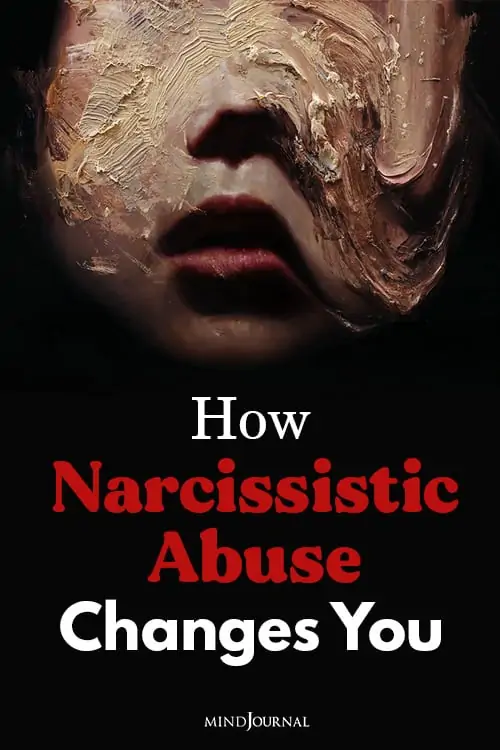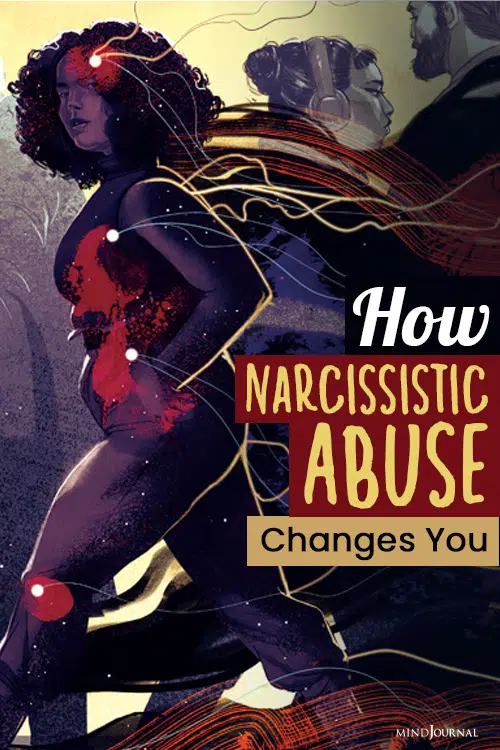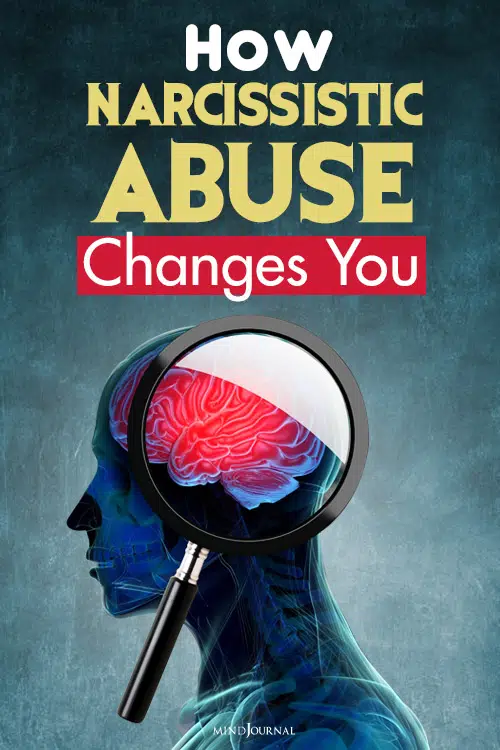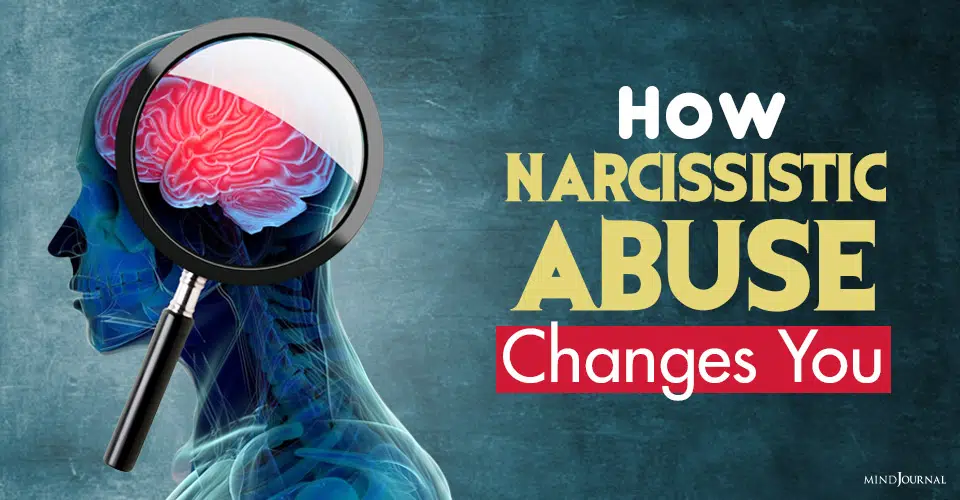If you are in a relationship with a narcissist and suffering abuse but unable to let go of the relationship, then you must read this post to know how narcissistic abuse causes brain damage and changes you.
If you were raised in a healthy home with loving parents, then chances are you would have been well-rounded and balanced. If your parents were neglectful, abusive, or absent, you might be struggling to find yourself, at the very least. You might also be living with a form of post-traumatic stress disorder that significantly affects your everyday reality.
In either case, if you happened to end up in a relationship with someone who turned out to be a toxic narcissist, or even who had been diagnosed with narcissistic personality disorder, then you would have had to endure their abuse.
And if you were in that relationship for a long time, then you might feel like you’ve lost yourself – or like you’ve never really known your true self at all.
That is due to the fact that narcissistic abuse changes you. It changes who you become. It changes what might have been a happy, confident, secure person into someone who doubts their worth and their value every day. It takes away your ability to have a healthy, full life and causes you to hyper-focus on it as you try in vain to resolve it, repeatedly, over and over again.
What happens during a relationship with a toxic narcissist to lead to these changes?
You’re probably wondering exactly which parts of this kind of relationship will lead to this metamorphosis. I’m going to walk you through some of the most common feelings and experiences that lead to the loss of self in a toxic relationship.
You go through these ups and downs. One week, you might be feeling elated because you’ve finally figured out the exact right thing to say to this person. You rehearse it in the mirror. You go over and over it in your head.
Related: Anxiety Disorders Could Be Caused By Being Exposed To Narcissistic Abuse
You know that THIS TIME, it’s going to work. THIS TIME, the narcissist will finally see the light and become the amazing person you know they can be – or at least, see you for the decent person you are.
When the conversation happens, you are ready and on point. You say all the right things and you think you might see a spark of understanding that will ignite a firestorm of positive change in the relationship.
You finish up what you’ve got to say and you pause, looking expectantly at the narcissist, hoping that look on their face is one of comprehension and realization. The pause feels like a full minute before the narcissist begins to speak.
And when they do, you feel yourself utterly deflating. You hear the same old responses. The same narcissistic rage, and when you don’t respond to that, because you’ve learned the gray rock method and you understand that reacting emotionally will only further encourage them to act out? They pull out the old narcissistic injury card. You know, the “poor me” act? Yep.
And it is at this very moment when you realize, for the 547-thousandth time, that this person will not change. That there’s nothing you could possibly do or say to be enough for them, to get them to wake up and see this person standing in front of them, just asking them to love them. And you mentally resign yourself to one of two things. Either you realize that you’ve got to leave, or you realize that this is now your life.
Related: 24 Terms Of Narcissistic Abuse That You Should Know About
So, how does a relationship with a toxic narcissist change you?
Well, it’s simple.
Narcissistic abuse causes brain damage and brain damage of any type changes you.
There are three significant parts of the brain, including the amygdala, hippocampus, and cortex.
The amygdala is the area of the brain that is known as the ‘fear center’. Each time you become scared or anxious, that area is activated. It also keeps the memories of the abuse in it and each time anyone talks about it, that activates the amygdala. The abuse you had endured is what caused the fear center to keep activating. And the constant activation of the fear center will cause it to increase. This can lead to mood disorders and anxiety disorders.
Related: Narcissistic Abuse Syndrome: 10 Signs You’ve Experienced Narcissistic Abuse
Then there is the hippocampus which is the area of the brain that stores short-term memories (which it then converts into long-term memories). The hippocampus dictates how and when you can learn anything new.
However, uncontrolled stress will shrink the hippocampus. So, as you might imagine, the constant stress you’re dealing with when you’re in a toxic relationship with a narcissist will cause it to shrink. This leads you to struggle more with learning new things in addition to being extra forgetful.
And finally, there is the cortex of the brain. This is the area of the brain that is located right behind the eyes. This is the area that is in charge of planning, making decisions, attention, and memory. The cortex also shrinks the same way the hippocampus does when you are under too much-uncontrolled stress.
This causes decision-making to become a challenge. Your attention span gets shorter. You’re far more likely to deal with depression. You might be dealing with apathy, meaning you just don’t feel like you can do anything at all – that feeling of being just stuck. And you stop caring about yourself. You might even stop showering or brushing your teeth. Self-care becomes a thing of the past.
So, now you know why you might have previously been successful, and took good care of yourself, and wanted to contribute something to society – but after enduring narcissistic abuse and brain damage, you found yourself being a shadow of what you used to be. And now you know that there is a scientific explanation of how the abuse changed you.
But the good news is that the brain can be retrained. And there are things you can do on your own at home to actually start to sort of “rewire your brain.” That is thanks to neuroplasticity.
Written by Angela Atkinson Originally appeared on Queenbeeing











Leave a Reply
You must be logged in to post a comment.